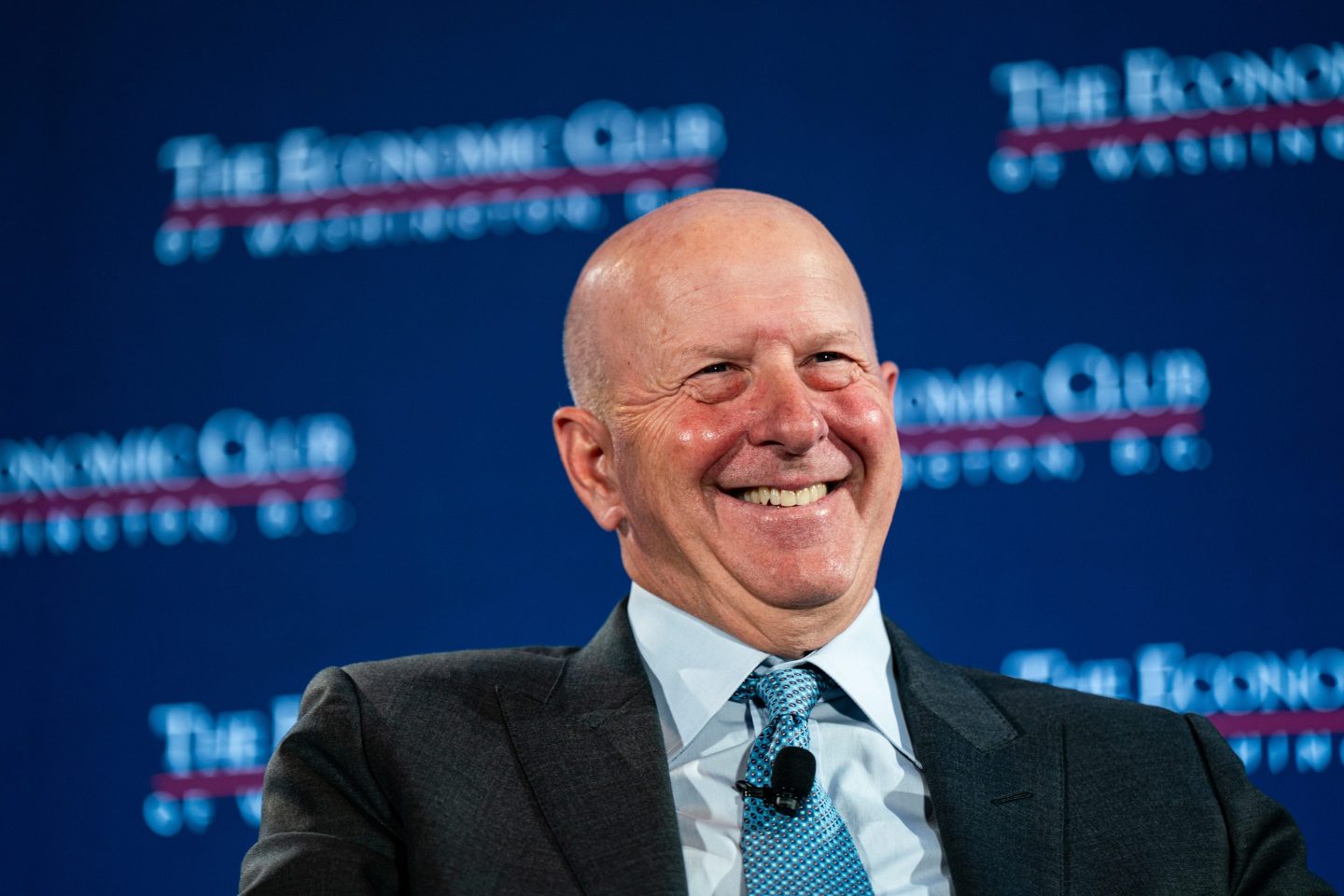- Gen Z and millennial workers think job-hopping is the only way up the ladder these days. But Cisco’s U.K. CEO’s career journey proves that patience could be key to long-term success.
Company loyalty is dying. Research has shown that 75% of employees leave their gig before ever getting promoted; they’re giving their bosses just three years to promote them before concluding the job is a dead end and jumping ship.
But Cisco’s new U.K. chief has a word of warning for young workers who expect a raise and a shiny new job title every year: “You just need to be patient in the journey,” Sarah Walker tells Fortune—and middle managers need to be “really patient.”
She would know. The 45-year-old boss spent 25 years climbing the ranks at the Fortune 500 Europe telecommunications giant BT. In that time, Walker went from joining the sales team at the £14.21 billion British ($17.7 billion) legacy brand to leaving as its director of corporate and public sector. Following a micro-retirement, she joined Cisco as managing director before being promoted to lead its U.K. and Ireland arm just two years later.
In Walker’s rise to the top, some promotions came in as little as a year and a half—others took longer than six years.
“When I started in sales, we faxed contracts and waited, we didn’t have email that we could use with customers, just good old-fashioned letters,” she explains. “So patience was a by-product of how we lived at that time.
“As a society, we’ve moved on to where everything is immediate, and that does bleed into people’s expectations of how quickly progression should be made and the pressure that people put on themselves to say, ‘I have to get promoted within a year and if I haven’t, then that means I’m not on the right trajectory, and therefore I’m going to go elsewhere and see if I can get there any quicker.’”
However, outside of the seemingly constant wins on your LinkedIn feed, in reality, progression takes time, Walker warns. Plus, waiting for the right opportunities matters more than rushing to take up the next step up on paper—and failing.
Read more from Fortune
“Different stages of your career, the step-ups can become bigger,” she says.
“A lot of the time, you find that in the middle-management level, that’s the time to be really patient because the higher up you go within an organization, the bigger exposure, bigger pressure, less opportunity to fail in many instances, and it’s more visible.”
In other words, slow and steady wins the race when it comes to sustainable success.
“There should be no time constraints on how quickly you progress,” she adds. “You need to make sure that you’re moving at the right time and the right pace.”
“As long as you never feel that you are stagnant, you feel that you’re being appropriately challenged, you’re learning new skill sets, you know that you’re moving forward.”
When it’s not worth holding out for that promotion
The trouble with being patient and trusting that a promotion will come in time is that there is a real chance that in five years you’re still in the same role—when you could have job hopped at least twice, gaining new skills and a significantly higher salary.
So, how can you tell whether or not your employer is worth investing years of your time in? For those early in their careers, it all comes down to whether you’ve ever actually vocalized with your manager where you want your career to go, Walker says.
The CEO says it’s on you, the worker, to outline your ambitions to employers and build a personal development plan. However, if your managers are aligned with your career goals, you’re working together through that plan, and opportunities are coming up—but you’re being bypassed—then, Walker says, that’s a big red flag.
“Maybe there isn’t the right level of movement above you to create that opportunity, that’s the point where you’d start to have different conversations,” she highlights, adding that if your boss has been in the same role for eons and is looking pretty comfortable, then it’s time to ask, what’s next?
“Be really clear on whether you think those opportunities will exist, or whether you’ve reached the ceiling within the organization and in the environment that you’re in, and if something external opens up those different opportunities,” she concludes.
“But if you haven’t got a plan and that hasn’t been kind of aligned to a mentor or a coach or a sponsor, it will be difficult for you to calibrate whether it is the right time or whether you’ve developed enough to be expecting that next opportunity.”
Her advice for those in middle management who may not see a promotion on paper for some time? Start looking for opportunities to grow your influence and skill set beyond your day-to-day responsibilities, like taking up an NED role.
“Be really clear on what personal progression looks like outside of a promotion, pay rise, grade increase, so that you still have those cognitive ways of knowing that you are moving forward, even if the job title hasn’t changed,” she says.
“People who do that could be at the same level of an organization for a really long period of time, but they’ve developed and grown.”













